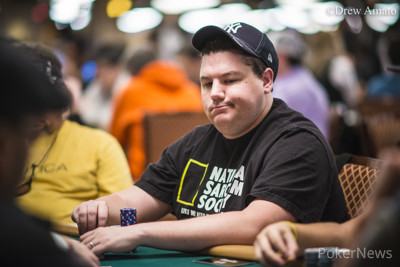David Matsumoto Poker
Poker news brought to you by blondepoker. 21st David Matsumoto (Playa Del Ray, CA) - $20,109 22nd Frank Sinopoli (Hollywood, FL) - $20,109. 2017 48th Annual World Series of Poker: Event #57: $2,500 Omaha Hi-Lo 8 or Better/Seven Card Stud Hi-Lo 8 or Better Mix. David Matsumoto: $6,013: United States: 23.
David Matsumoto poker player profile. Get latest information, winnings and gallery. David Matsumoto Eliminated in 23rd Place ($33,230) Main Tour WPT L.A. Poker Classic Season 2019-2020 4 12,000/6,000-12,000.
Happy or not, Russians rarely smile in public.
David Matsumoto Poker Player
By Marina Krakovsky published January 1, 2009 - last reviewed on May 15, 2017
American visitors to Russia often can't get over the sullen looks on the natives' faces, worn by service workers and passersby alike. But what may appear to be a nationwide case of the blues has a more benign origin.
While it's true Russians are generally less happy than Americans, the difference isn't huge, explains PT blogger Sonja Lyubomirsky, a psychologist at the University of California-Riverside and the author of The How of Happiness. 'It could explain part of the effect, but it's not the whole story,' she says. In fact, in private, it's Americans who look more subdued, says Lyubomirsky, who grew up in Moscow. 'You go to a dinner at a Russian home, and the Russians seem happier—they're drinking, singing, telling stories.'

This public-private divide hints at a set of cultural rules about when to show your feelings. David Matsumoto, a psychologist at San Francisco State University who led a large study of emotional display rules around the world, found that Russians control their expressions of emotion much more than Americans do. This is true of collectivist societies in general: Where people are more interdependent and group-oriented, they tend to either neutralize their emotional responses or mask one expression with another—especially with strangers or in public.
Tamping down emotional displays reinforces the borders between friends and strangers, which in collectivist societies are hard to cross. In individualist, mobile societies like the United States, in contrast, relationships come and go more easily, leading to more openness with everyone.

Oblivious to these rules, both sides are bound to misread each other's faces. Just as Americans mistake Russian reserve for surliness, Russians find friendly American smiles phony.
No one is sure how Russians came to prefer neutral expressions to masking their emotions with smiles the way the intensely collectivist Japanese do. It may be that Russians, spread out on their vast land, had less need for pleasantries. Or Russia's shortage of resources for coping with a harsh climate put its people in survival mode. Pile on a brutal history—especially in the Soviet era—and it's not surprising Russians are cautious around strangers.
Whatever the reason, it takes longer to befriend a Russian. But as Matsumoto puts it, 'Once you're drinking vodka shots together, they're more expressive than anyone else.' —Marina Krakovsky
Buried Feelings
Moscow subway posters have been urging the public to smile: 'It's an inexpensive way to improve your looks,' says the headline above an uncharacteristically cheerful Metro worker. But it'll take more than an ad campaign aimed at increasing well-being to change Russia's deep-seated attitudes. Linguist Iosif A. Sternin of Russia's Voronezh State University provides a sampling of the unwritten rules of smiling:
David Matsumoto Poker Tour
- A Russian smiles only for good reason—and only if the reason is apparent to those around him.
- It's not customary to smile while helping customers or conducting serious business.
- It's not customary to smile to lift another's spirits.